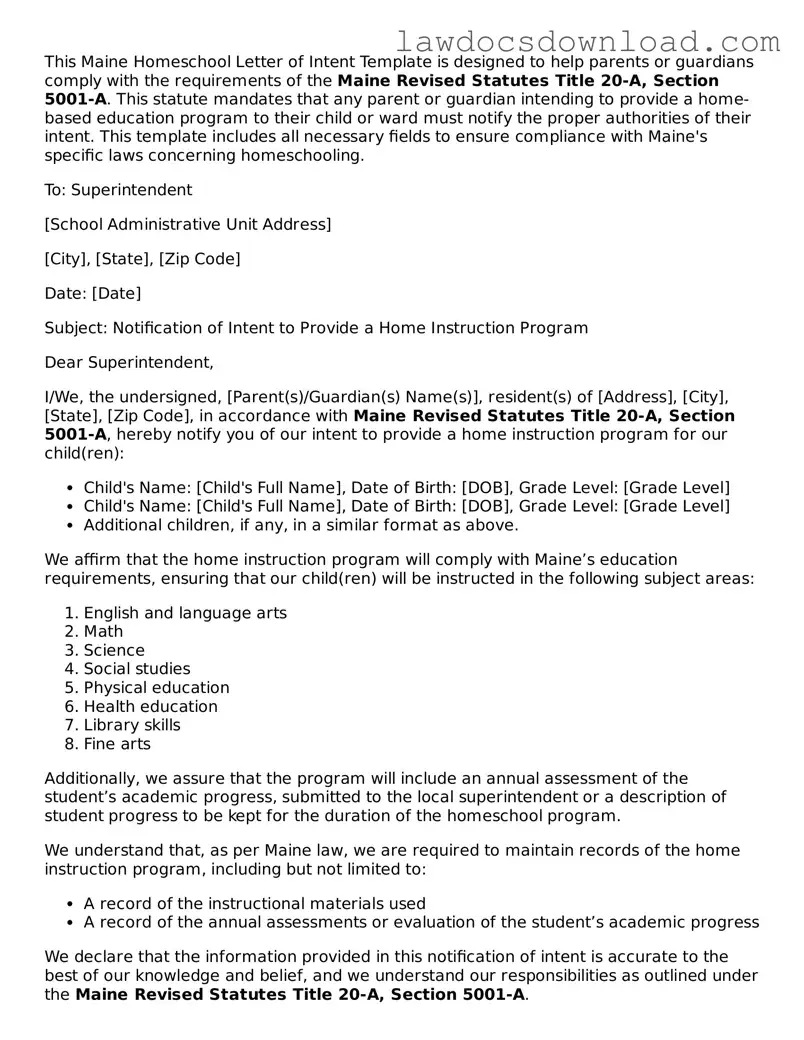Legal Maine Homeschool Letter of Intent Form
The Maine Homeschool Letter of Intent form is a necessary document for parents or guardians who choose to educate their children at home. It serves as official notification to the local school district that a child will be homeschooled, ensuring compliance with state educational requirements. This form marks the beginning of a homeschooling journey, setting the stage for a customized educational experience.
Launch Homeschool Letter of Intent Editor Here

Legal Maine Homeschool Letter of Intent Form
Launch Homeschool Letter of Intent Editor Here

Launch Homeschool Letter of Intent Editor Here
or
Free Homeschool Letter of Intent
Get this form done in minutes
Complete your Homeschool Letter of Intent online and download the final PDF.